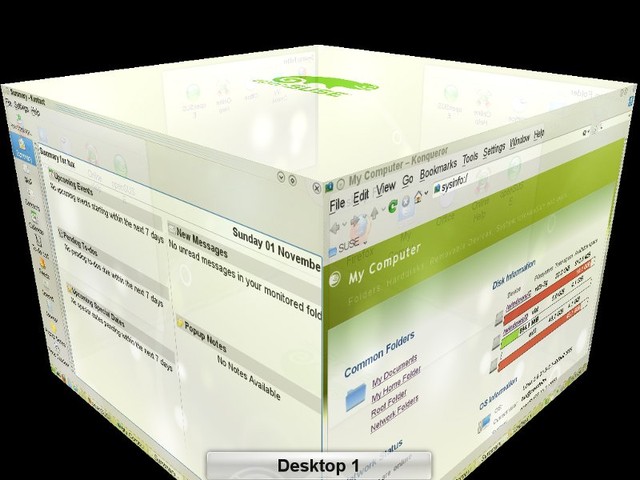Where Novell & SUSE Linux goes from here


NetIQ, a previously existing Attachmate division, will be in charge of the following product lines:
- Novell Identity Manager
- Novell Access Manager
- Novell Sentinel
- Novell Operations Center
- The PlateSpin product line
In short, all of Novell's identity and access management, security and compliance management, and data center management products have all gone to NetIQ.
Novell proper is returning to its Utah roots. The company's headquarters will be in Provo Utah. That's not as good as it might sound though for veteran Novell staffers. Attachmate has already fired several hundred of Novell's Utah employees.
Novell's programs will include:
- Novell Open Enterprise Server (OES)/NetWare
- Novell GroupWise
- Novell ZENworks
- Novell File Management Suite
- Novell Vibe
NetWare some of you may ask? Yes, NetWare. I'm told by sources in Novell that after years of slowing pushing the last NetWare customers to SUSE Linux Enterprise Server (SLES), the new Novell will continue to support NetWare under OES for years to come.
As for SUSE Linux, it returns to its Germany roots with Nils Brauckmann in charge. In an interview Brauckmann told me, "By operating SUSE as a separate business unit focused on the Linux marketplace, we can accelerate our delivery of high-value Linux solutions that help organizations enhance growth, reduce costs, tame complexity and spur innovation. We have the world-class engineering resources, partners and state-of-the-art technologies to succeed. Now we are sharpening our focus on making SUSE Linux Enterprise the preeminent Linux distribution across physical, virtual and cloud environments."
Brauckmann also told me that "We recognize and celebrate the value of the openSUSE Project and will remain a strong supporter of the openSUSE community. We reiterate our long-term commitment to the open source communities at the heart of our ecosystem. Our presence in these communities will help our customers benefit from the rich value of Linux, while encouraging the collaboration that has made Linux the foundation of so many computing environments today."
Specifically, Brauckmann said that SUSE will continue to stick to the already announced SUSE Linux announced product lines. In other words, SLES and SUSE Linux Enterprise Desktop (SLED) will continue to be produced. SLES, for example, will continue to be supported on IBM's System z mainframe lines.
He added that SUSE wanted to improve its relations with other open-source projects. "Together, we will strive for innovation and to improve open-source quality. Many people in SUSE are members of the community and we will continue strong relationship with openSUSE." Specifically, "SUSE will continue to support the openSUSE organization, events, and conferences."
So what does that mean outside of Linux? Brauckmann confirmed that SUSE has given up on Mono, the open-source adaptation of Microsoft's .NET architecture. Mono's founder, Miguel de Icaza, has already started a new company, Xamarin, to commercially support this development architecture.
Brauckmann explained that SUSE made this move because "Quite frankly we have to adjust our investments to meet sales and customer demand." And, there simply wasn't much commercial demand for Mono.
On the other hand, Brauckmann also said that SUSE will continue support LibreOffice, the open-source office suite, and the Linux-based Evolution groupware/e-mail client.
Like the heads of NetIQ and Novell, Brauckmann will report directly to Attachmate's CEO Jeff Hawn. While each division will be independent, with its own go-to-market strategy, they will share some corporate level resources such as in-house counsel and human resources.
So what does it all mean? Well, I'm inclined to take a wait and see attitude. That said I am worried that the new Novell and SUSE have lost all their senior management. The executives in charge of the three companies all have vast experience, but few of the non-technical leadership have spent significant time working on Linux or open-source projects. Let's hope they can learn fast. Red Hat, in particular, isn't going to give SUSE much time for on-the-job learning.
Related Stories:
Novell will continue to support LibreOffice
Mono lives ... in new startup Xamarin